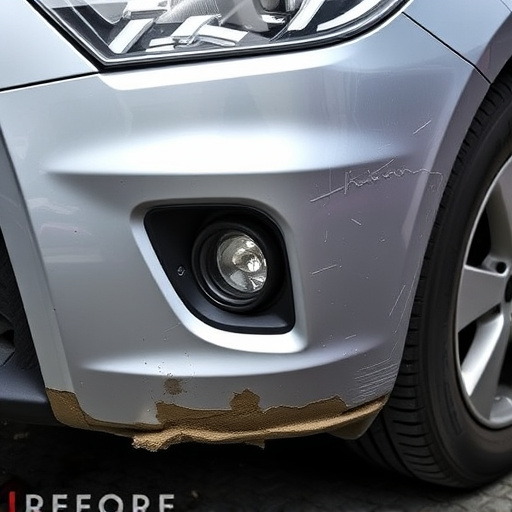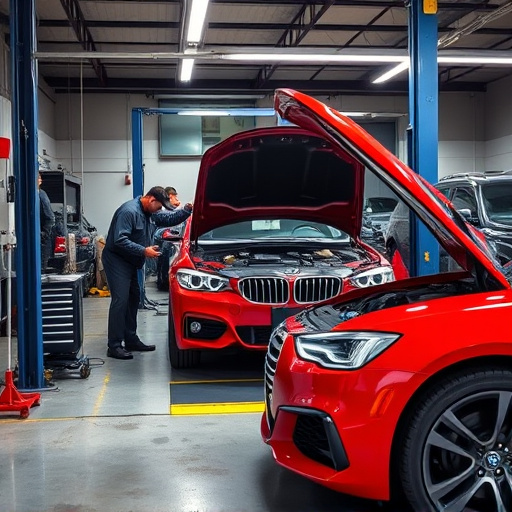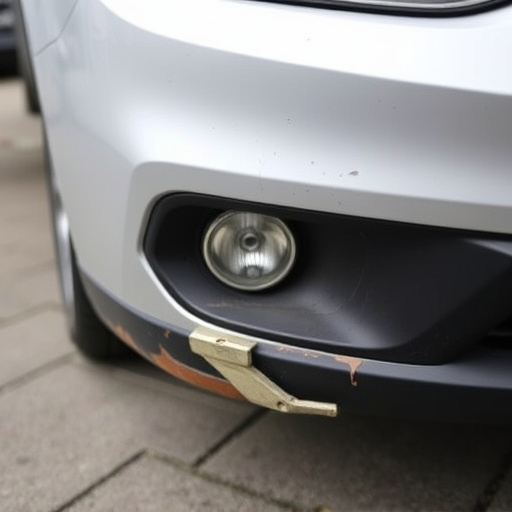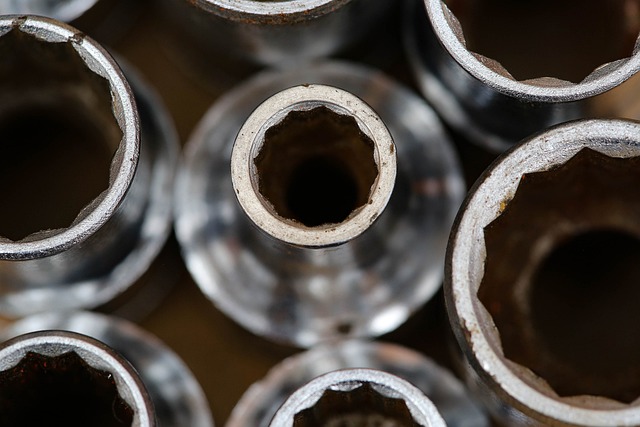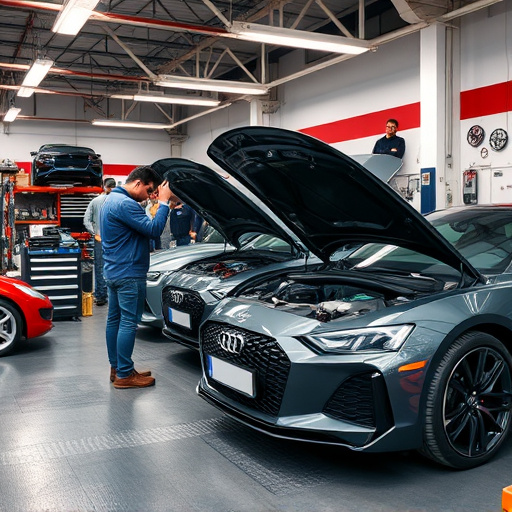Auto accident repair training combines theoretical knowledge and hands-on skills, covering vehicle dynamics, safety procedures, and diverse body shop services. Rigorous programs equip technicians with expertise from minor dent fixes to major structural restoration, ensuring quality repairs and safer driving environments. Certified professionals find opportunities in traditional shops, specialized centers, custom restoration, and insurance assessments, enhancing job security and career prospects.
In today’s world, properly trained and certified auto accident repair technicians are indispensable. This article delves into the crucial aspects of preparing these professionals, focusing on understanding specific training requirements and the key components of their education. We explore the benefits and diverse career paths available to those who embark on this path, underscoring the significance of skilled auto accident repair in ensuring safety and efficient vehicle restoration.
- Understanding Auto Accident Repair Training Requirements
- Key Components of Certified Technicians' Education
- Benefits and Career Paths for Trained Professionals
Understanding Auto Accident Repair Training Requirements

Understanding Auto Accident Repair Training Requirements
In the complex world of auto accident repair, ensuring proper training is paramount to maintaining safety standards and delivering quality repairs. Technicians must be well-versed in a multitude of skills, from intricate fender repair to comprehensive vehicle restoration. The foundation of their expertise lies in rigorous training programs that cater to both theoretical knowledge and practical application. These programs are designed to equip technicians with the tools and understanding necessary to handle a wide range of accident damage, from minor dents and scratches to major structural repairs.
A comprehensive auto accident repair training curriculum typically includes modules on vehicle dynamics, safety procedures, and specialized techniques for various types of body shop services. It also delves into fleet repair services, reflecting the growing importance of commercial vehicle maintenance in today’s economy. By combining classroom instruction with hands-on training in a controlled environment, students gain the confidence and proficiency required to tackle real-world auto accident repair challenges effectively.
Key Components of Certified Technicians' Education
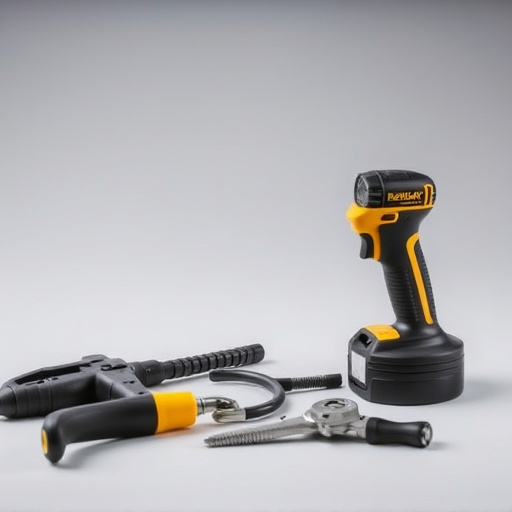
The education of auto accident repair technicians involves several crucial components that equip them with the skills and knowledge necessary for their specialized field. Firstly, a comprehensive understanding of vehicle mechanics is essential. This includes learning about various car makes and models, engine functionalities, and the intricate systems that comprise modern vehicles. Technicians must be adept at diagnosing issues, as this forms the backbone of effective collision repair.
Secondly, hands-on training in a controlled environment is vital for mastering complex auto accident repair techniques. Students should engage in practical exercises involving everything from simple car dent repairs to major structural overhauls. This experiential learning ensures that technicians are prepared to handle real-world scenarios in a car repair shop, where precision and safety are paramount. Additionally, ongoing education and certification programs keep them updated with the latest industry standards and technological advancements in collision repair.
Benefits and Career Paths for Trained Professionals

Trained professionals in auto accident repair enjoy numerous benefits that extend beyond simply fixing vehicles. Their expertise is highly valued in an industry where vehicle safety and aesthetics are paramount. Many technicians find rewarding careers not only in traditional auto body shops but also in specialized centers focusing on complex repairs, custom car restoration, and even insurance assessments. These diverse career paths offer financial stability and the satisfaction of contributing to a safer driving environment.
With proper certification, professionals can become key contributors to the automotive industry, ensuring cars are restored to their pre-accident condition through expert techniques like meticulous paintwork, sophisticated computer-aided repairs, and advanced metalworking. This specialization not only enhances job security but also opens doors to leadership roles in management or training, further amplifying the impact of their skills on both individuals and the broader automotive ecosystem.
Training and certification are pivotal steps for aspiring auto accident repair technicians. By understanding the core requirements, engaging in comprehensive education programs that cover everything from structural integrity to advanced electronics, and leveraging the many benefits of professional certification, individuals can position themselves for successful careers in this vital field. With a growing need for skilled technicians following the increasing frequency of auto accidents, now is an excellent time to embark on this rewarding path and become a crucial part of ensuring safer roads for all.
